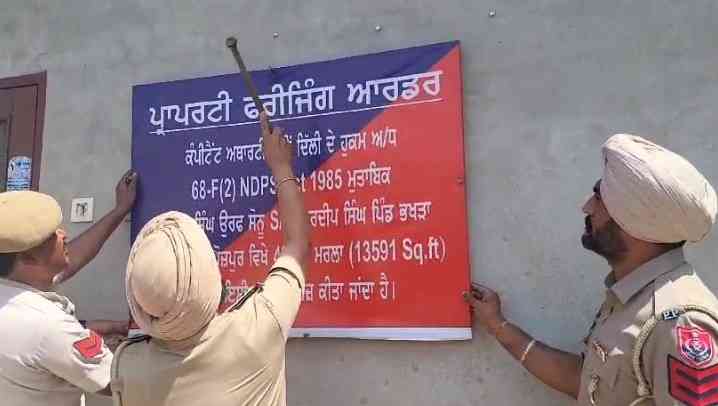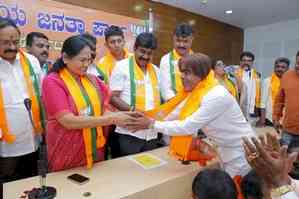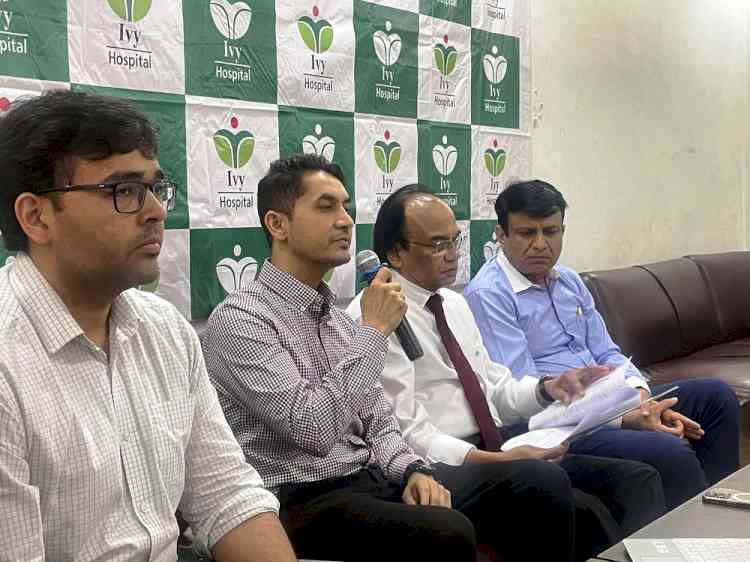TAKE CARE OF YOUR HEART THIS DIWALI/BY DR SANDEEP CHOPRA
Ludhiana: Diwali, the festival of lights, is meant for feasting, bursting crackers and enjoying with the family, but doctors warn that patients suffering from lung and heart diseases, hypertension and diabetes need to exercise caution as their...

Ludhiana: Diwali, the festival of lights, is meant for feasting, bursting crackers and enjoying with the family, but doctors warn that patients suffering from lung and heart diseases, hypertension and diabetes need to exercise caution as their condition might worsen. The upsurge in the poor quality of air on Diwali , can be consequential for people who have respiratory and heart problems, increasing chances of heart attacks.
Our city’s air pollution problem already poses health risks to citizens who can expect a reduced life expectancy because of that. On Diwali eve, with firecrackers exploding everywhere, an upsurge in the level of suspended particulate matter is noticed.
According to a USA based study which examined 16,000 patients who had suffered three kinds of heart attacks – STEMI, non-STEMI and unstable angina -- from 1993 to 2014, it was found that on bad-air-quality days, more cases of STEMI, the most severe kind of heart attack, had a greater chance of occurring.
The loud noise from crackers may trigger heart attack in those who have angina (chest pain due to reduced blood supply in the coronary arteries). The sudden shock of a loud blast may shoot up the blood pressure of those with hypertension (high blood pressure) and this may even precipitate stroke.
While it is difficult to directly point fingers at crackers for causing heart disease in an otherwise healthy person, it is a known fact that noise pollution causes anxiety, which results in stress. Stress increases the level of certain chemicals like catecholamine and interleukins, which raise blood pressure and clotting tendency of blood, all of which increase the potential for heart attack.
For patients having ischemic heart disease (reduced blood supply due to narrowing of coronary arteries) or who have suffered earlier heart attack and are taking medicines, there is risk of increasing the severity of chest pain and this may even precipitate a fresh heart attack. People who have undergone angioplasty or bypass surgery are somewhat protected from heart attack but still run the risk of rupture of plaque and new blockage.
Those who suffer irregular heart rhythm (cardiac arrhythmia) may experience an increase of symptoms like palpitation (uncomfortable pounding sensation in chest), dizziness, shortness of breath or sudden loss of consciousness for brief period (black out). For those having serious rhythm disturbances like Ventricular Tachycardia may even suffer from cardiac arrest, where the heart stops pumping and this needs immediate resuscitation to prevent fatal consequences.
For those with heart failure (a condition where the pumping action of the heart is compromised due to underlying heart, lung or kidney condition), the loud sound may increase the heart rate and blood pressure, forcing the heart to pump faster and harder, thereby increasing the load on an already weakened organ and produce symptoms like shortness of breath, chest pain, palpitation, accumulation of fluid in the body etc. The risk increases when there are repeated blasts of loud crackers in close vicinity, so watch out!
Festivals are meant to brighten up our lives. A little planning and precaution help you enjoy it from your heart.
WATCH YOUR SWEET TOOTH
-Mithai or Sweets are usually made in transfats (Vanaspati) which lower the good cholesterol and increase bad cholesterol. Sweets are bad for patients with high blood pressure, diabetes, obesity or heart disease.
- Diwali sweets have very high content of white sugar and cause metabolic syndrome, insulin resistance and resultant rise in blood pressure, blood sugar and weight.
- The sweets may have non-permissible colours which may cause allergy (skin or lung). These colours may also be carcinogenic in the long run.
-Most sweets are recycled from one family to another. The sweet packets are often left in the car for hours together and sometimes even overnight before getting distributed the next day. Any food items kept in the room temperature for more than two hours may not be good for the health.
(DR SANDEEP CHOPRA IS MD DM ( CARD ) FRACP ( AUS ), SENIOR CONSULTANT CARDIOLOGIST, FORTIS HOSPITAL, LUDHIANA.)

 cityairnews
cityairnews 















